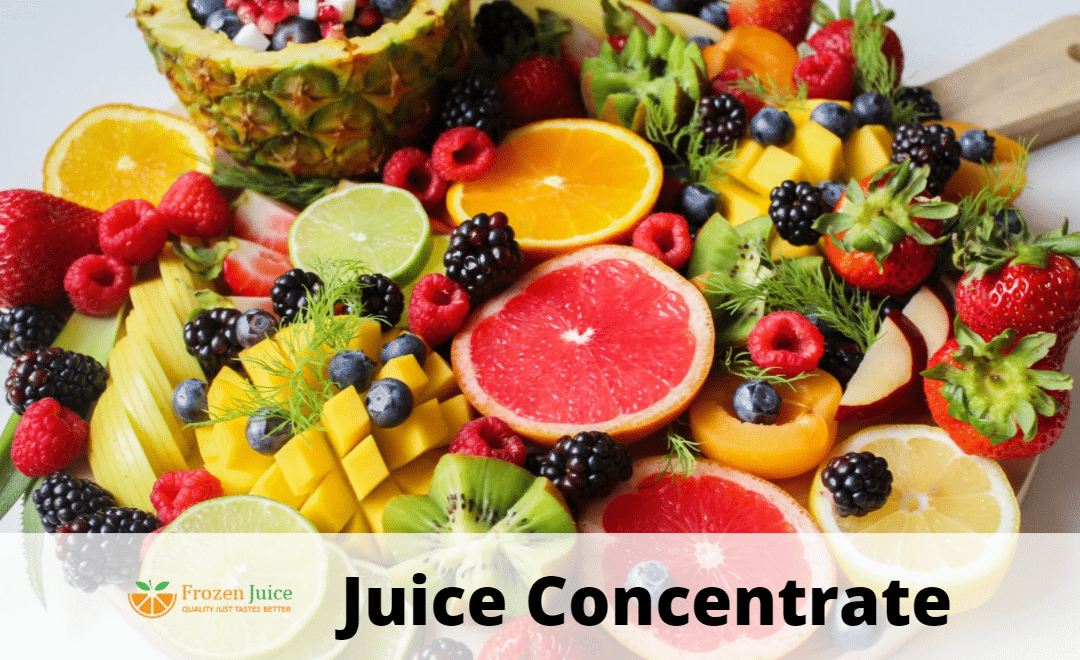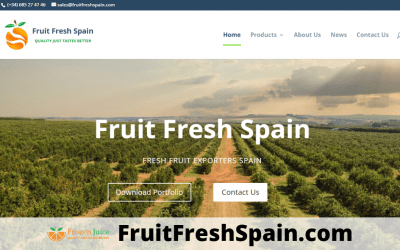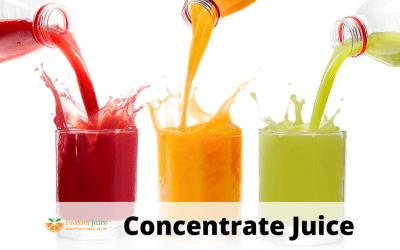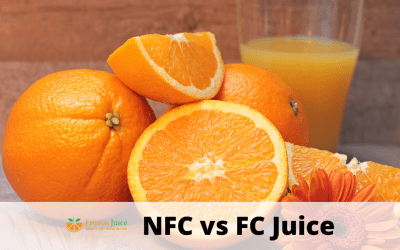Juice Concentrate or Natural?
What is the difference between a natural juice and a concentrated juice?
Fruit juice has as many detractors as lovers, but very few know about the different juices available on the market. Natural juice is a healthy drink, although it can never be a substitute for eating fruit, as properties such as fibre are lost in the liquefied product. What you should be aware of is what kind of juice you are drinking: is it natural juice or juice concentrate?
Many companies play with drinks with a certain amount of juice concentrate, making people believe that it is a good option for your health. Although it is also a juice, its properties and qualities are not the same.
Fruit Juice
Fruit juice has as many detractors as lovers, but very few know about the different juices available on the market. Natural juice is a healthy drink, although it can never be a substitute for eating fruit, as properties such as fibre are lost in the liquefied product. What you should be aware of is what kind of juice you are drinking: is it natural juice or juice concentrate?
Many companies play with drinks with a certain amount of juice concentrate, making people believe that it is a good option for your health. Although it is also a juice, its properties and qualities are not the same.
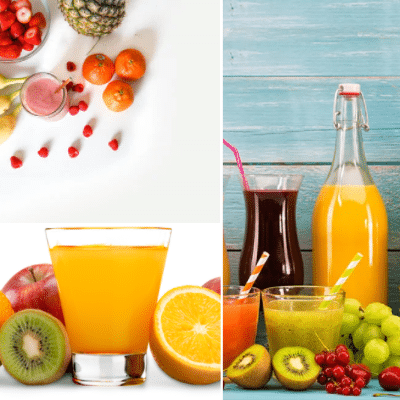
What is juice concentrate?
Drinks, both juices and soft drinks, created from concentrate do not mean that they choose the best part of the juice. In fact, concentrate occurs when a squeezed juice has undergone a dehydration process to remove more than 80% of the water content. In some cases, such as orange juice, the high properties of the juice are maintained; the disadvantage is that before packaging, water and additives are added to restore the juice’s natural appearance. However, its nutritional value is so low that it is not worth consuming it in concentrate.
The juice from concentrate is actually juice from the real fruit. The only difference is that it was processed, i.e. its water content was evaporated after it was extracted from the real fruit and then dried to make a powder. This powdered form of the juice is called concentrate. Evaporation has a commercial benefit, as it makes the real fruit juice less bulky and therefore cheaper to transport. Remember, water is heavier than the dry powder.
This powder is further liquefied by injecting it with water in the bottling factory. At this point, some preservatives and food colouring are also added to increase the shelf life of the juice and improve the appearance. Some manufacturers also add additional nutrients such as vitamins while bottling to add extra value. So, technically, it is still 100% juice but in a concentrated form.
Juice concentrates lack fibre and are sometimes loaded with added sugar and preservatives or flavourings. If possible, whole fruits and vegetables are recommended. This will be the healthiest way to get your daily servings with all nutrients intact.
Basically, it boils down to:
100% juice from concentrate = 100% real juice + water (may or may not be there) + some preservatives / additives.
What is natural juice?
Natural fruit juice, on the other hand, does not undergo any treatment that alters its properties. It is the best way to consume a good dose of vitamins, although its conservation does not usually last more than 2 days in the fridge. Yes, it is false that the vitamins evaporate if you don’t drink it as soon as you squeeze it. As long as you keep it cold, and in a tightly closed glass jar, there will be no problems.
All citrus juices such as orange or lemon begin to lose their flavour as they come into contact with oxygen due to chemical reactions. I’m sure many have noticed this whenever lemon juice is left in the open air. The taste starts to become more bitter. This reaction also makes the juice more acidic. This is why our elders have always advised us to drink citrus juices as soon as they are extracted or the juice bottle is opened. If left open on a shelf for little more than half an hour, the real value of the nutrients begins to fade exponentially.
In any case, fresh is better than concentrate, if that option is available. Certainly, we can opt for bottled concentrated juice without major concerns about its wholesomeness. It is 90% of what the real juice would be if extracted on its own.
See our selection of NFC Lemon Juices
Other types of juice
Buying industrial juice is highly complicated. Not only do we find a thousand different names, but we are often unable to differentiate whether juice with milk, smoothie or nectar is better.
Soft drinks with juice. It is important to pay attention to whether it is natural juice or juice concentrate, although the amount is usually minimal. They are considered soft drinks because they contain gas and because the percentage of juice is not significant. For example, Sunny Delight or the non-carbonated soft drink from Mercadona.
Fruit nectar. It is often confused with natural juice, but it is really a mixture of juice, sugar and water. It is true that almost 50% of the natural juice is preserved, but there is a very high dose of sugar. It is certainly the least healthy option.
Fruit juices with milk. The typical Bifrutas that parents buy for their children thinking that they provide them with enough vitamins and calcium. No, they are not a good option, nor is it equivalent to having a piece of fruit and a case of milk. Most of these juices are made with nectar, so there’s hardly any healthful addition.
Smoothies. These are always best made at home in a homemade form. They are made with chopped fruit and vegetables, to which milk, seeds or nuts are added. They do not usually contain additives, but they do contain preservatives.
100% squeezed juice. This is the closest option to natural juice, as they do not undergo preservation processes, added sugars or additives. In addition, they tend to retain their nutritional properties. According to the OCU, they are the most natural ultra-processed juices.
Pasteurised juice. The pasteurisation process (involves heating to kill germs) causes the actual juice to lose its flavour. Almost 99% of bottled juice has been processed to stay on the shelf for longer periods of time. To compensate for the loss of taste and texture, manufacturers will have added some colours or additives that match the taste to make it as close to the real juice as possible. This means that bottled juice, whether from concentrate or real fruit, may actually contain less nutritional value than real fruit.
Fruit Fresh Spain
Fruit Fresh Spain - Site LaunchWe are pleased to announce the launch of our sister-site Fruit Fresh Spain. Fruit Fresh Spain is a leading fresh fruit exporter. located in Archena, a town in the province of Murcia, dedicated to the cultivation, production and marketing...
Concentrate Juice Explained
Concentrate Juices Explained Most consumers never really think about the types of juices that they buy.Most consumers never really think about the types of juices that they buy. They just look for the brand that they usually buy or maybe one that they have seen on...
Differences between NFC juice and FC Juice
Comparison of NFC juice with FC juice and their Differences The market is being taken over by innovative fruit juice products.The peak season for the beverage industry begins when the temperature begins to rise above average. Customer's attention is drawn to the...

